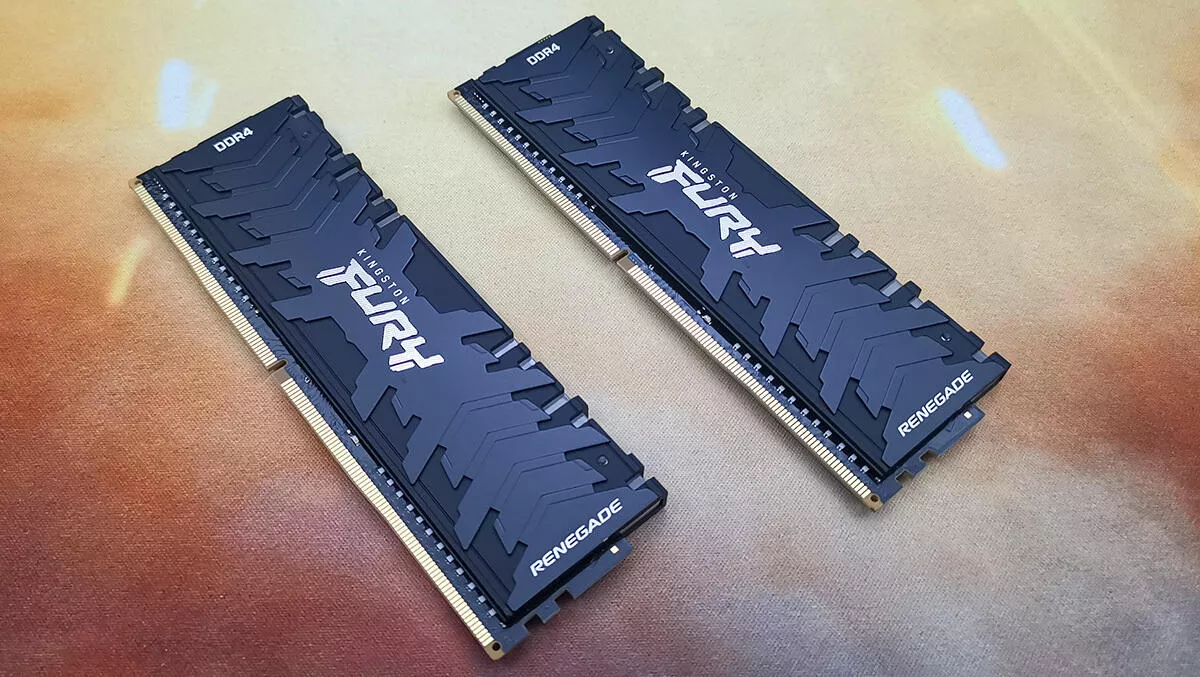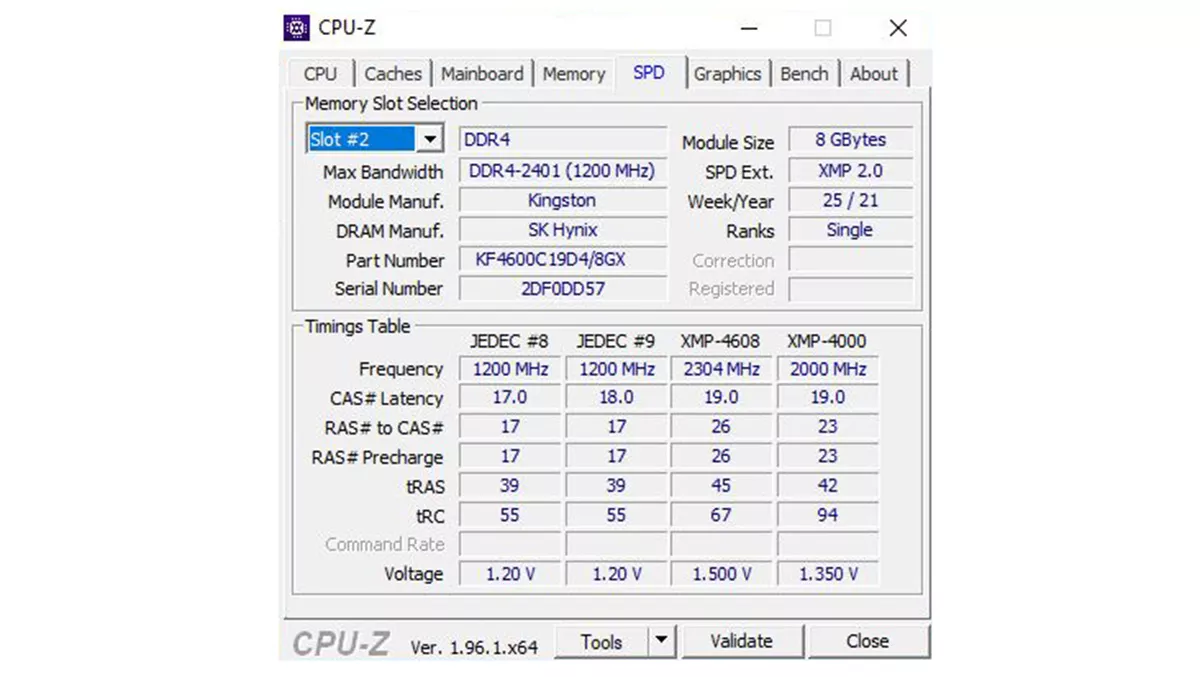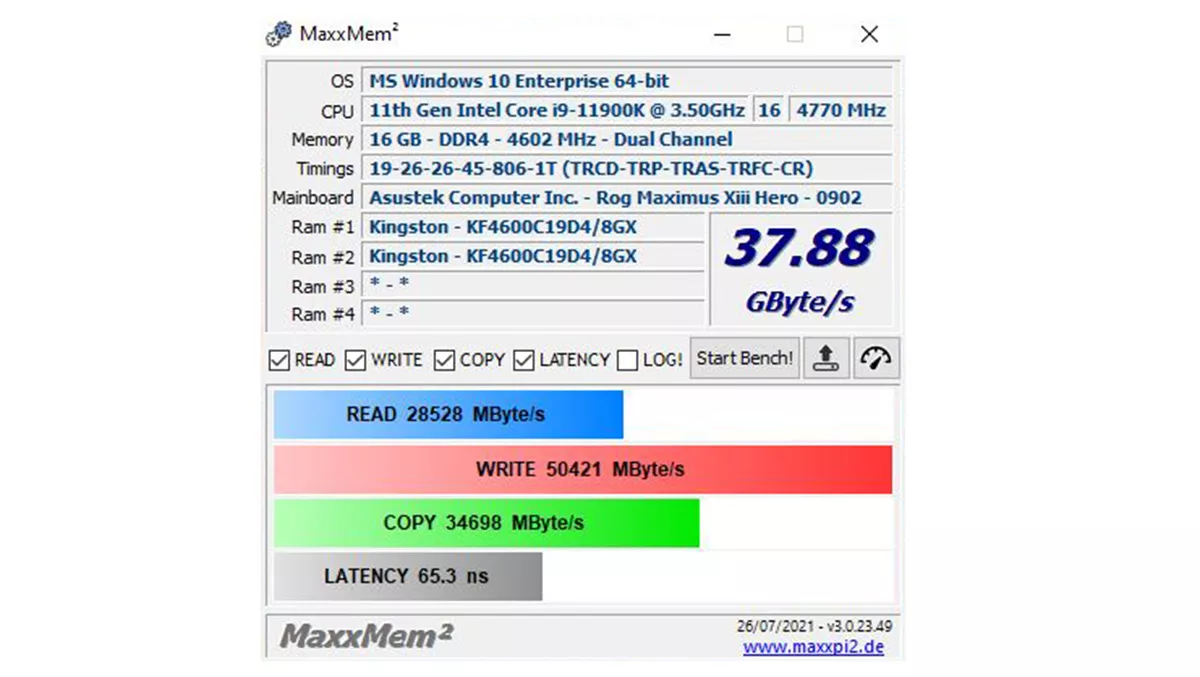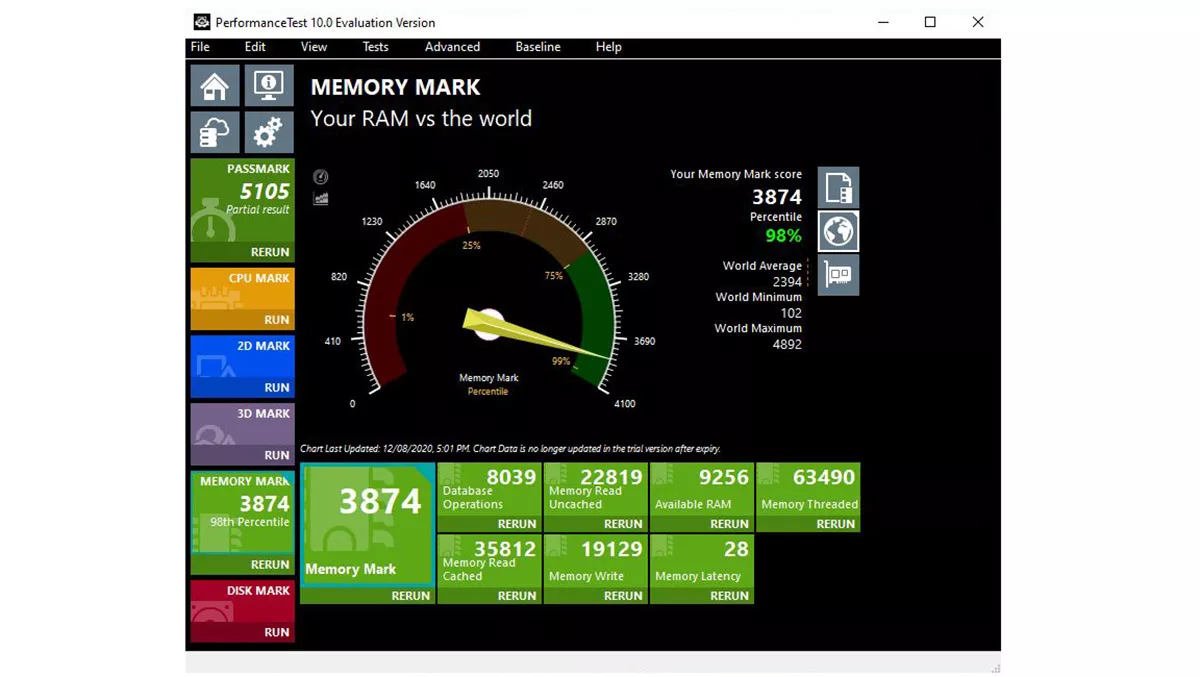
Hands-on review: Kingston Fury Renegade DDR4-4600 memory
Kingston's Fury Renegade DDR4-4600 are some of the fastest PC memory modules available today, if you've got the rig to use it.
These slick-looking modules feature functional (i.e. not overly industrial) heatsinks and RGB lighting. The RGB supports all the top case motherboard illumination systems like MSI's Mystic Light Sync, Gigabyte's RGB Fusion 2.0, and Asus' Aura Sync. I was sent a 16GB (2x8GB) kit to test.
System memory is often the unsung hero of a PC build. When I look at a motherboard manual, I often see a bold list of compatible memory module speeds, some of which don't exist yet, many which need arcane overclocking skills to run, and a few that really won't work no matter how hard you try.
Take the Asus ROG Maximus XIII Hero Z590 motherboard that I currently have in the test rig. It's designed for Intel's 11th-Gen CPU and I've got it running with Intel's top-of-the-range Core i9 11900K CPU. Natively, even this powerful set-up can only run DDR4-3200 memory natively. All other memory speeds are considered overclocks, well sort of. Even so, this Asus board can still run Kingston's blisteringly fast DDR4-4600 modules at full speed.
Checking the Asus website for the memory QVL (qualified vendors list), whilst I couldn't find the Fury Renegade, I could find some very similar Kingston HyperX modules listed. The listed kit was the HyperX HX446C19PB3K2/16 with identical timings and voltage (19-26-26-45 @1.5V) to the Kingston Fury Renegade DDR4-4600 memory kit, which also has a similar model number of KF466C19RBA2/16. It's close enough to suggest that the memory on test is a Kingston Fury branded RGB revision of Kingston's own HyperX RAM.
Kingston Fury Renegade achieves its 4600 MHz maximum rated speed via Intel's XMP 2.0 (Extreme Memory Profile 2.0) technology. It's actually running at 2304 MHz with the double data rate (DDR) giving it a total speed of 4608 MHz. Whilst the modules are being overclocked, it's a kind of certified overclock. The XMP option needs to be activated within the motherboard's UFEI (previously the BIOS) settings. For the ROG Maximus XIII Hero, it's just a case of selecting the XMP mode and restarting.
This boosts the memory from its JEDEC-rated frequency of 2400 MHz with timings of 17-17-17-39 at 1.20V to 4608 MHz with timings of 19-23-23-42.
There is a difference of opinion as to how much benefit the higher frequency provides in practice. Certainly, going from 3000 MHz to 3200 MHz probably won't make a difference. But as other components in PCs incorporate input/output gains, such as solid-state drives and graphics cards, RAM speeds need to keep up.
The clear issue is that to achieve 4608 MHz the Fury Renegade DDR4-4600 timings are slower, with the CAS latency reduced from 17 to 19 nanoseconds and the voltage increased to an old-school 1.5V.

Of course, if your motherboard supports DDR4-4600 and you want to maximise your build, you are going to want to put DDR4-4600 RAM in there. Just as a Core i9-11900K offers only a moderate performance gain over an i5 11600K and an RTX 3090 a moderate gain over an RTX 3080, DDR4-4600 offers a similar moderate bang for your buck over far cheaper RAM.
Comparing the JEDEC speed of 2400 MHz with that of the XMP 2.0 speed of 4600 MHz using MaxxMem² yields some interesting results. At 2400 MHz the read speed is 25724 MB/s, the write 34744 MB/s, copying 27422 MB/s with a latency of 75.3ns. At 4608 MHz the read speed increases to 28528 MB/s, the write speed increases to a whopping 50421 MB/s, copying is now at 34658 MB/s with the latency down to 65.3ns. To be fair, that's a very real performance increase that I wasn't expecting.

Using the Memory Mark of 3874 from PerformanceTest 10 put the test rig running the Kingston Fury Renegade DDR4-4600 RAM in the top 2% of PCs globally. There are your bragging rights, right there.

Kingston Fury Renegade DDR4-4600 isn't cheap, these are enthusiast-level components. Even the 16GB kit that we were sent to test costs north of NZ$600. Whilst 16GB is fine for gaming (at the moment), memory-intensive tasks such as video editing, 3D modelling, and rendering may require 32GB, making DDR4-4600 perhaps a bit too extravagant.
If you've got the motherboard to handle it and you have a PC case already full of the latest and greatest PC components, some Kingston Fury Renegade DDR4-4600 RAM is probably for you. Yes, it's possibly a bit extravagant, but with a distinctive look and RGB lighting, this RAM could be the icing on the cake for your PC gaming powerhouse.


